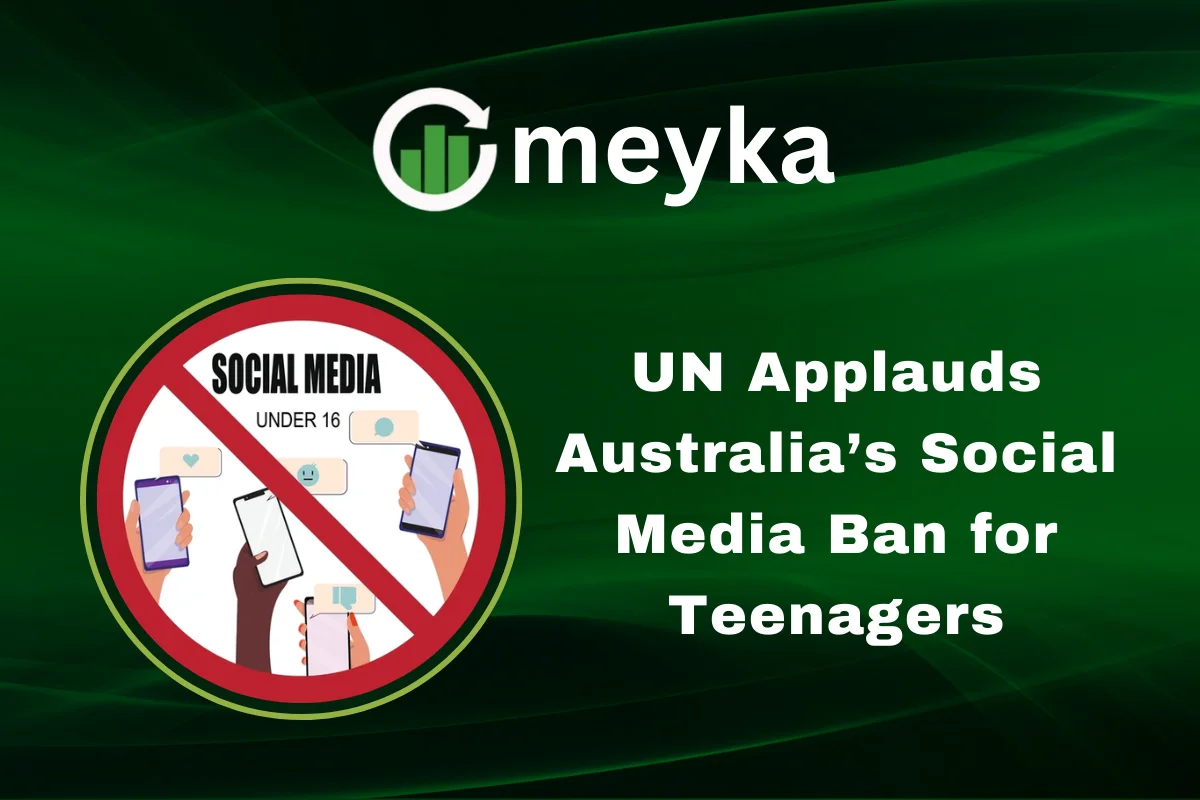UN Applauds Australia’s Social Media Ban for Teenagers
The United Nations has applauded Australia for taking a bold step with its recently announced social media ban for teenagers. This move has sparked global debates about the safety, health, and future of younger generations growing up in the digital era.
As concerns around online addiction, cyberbullying, and exposure to harmful content grow, Australia’s decision has positioned it as a leading example in protecting children’s mental well-being and privacy.
Australia’s Bold Decision on Social Media Ban
Australia introduced a policy that restricts teenagers below a certain age from creating or using social media accounts without parental consent. The government emphasized that the decision was not to limit freedom but to shield young people from the potential dangers of overexposure online.
For years, experts have warned that teenagers are vulnerable to online risks, including harmful challenges, bullying, predatory behavior, and misinformation. By addressing these issues through legislation, Australia is setting the stage for a global conversation on responsible social media use.
The UN’s praise reflects international recognition that governments must act decisively to protect younger citizens from the darker sides of the digital age.
Why the UN Supports Australia’s Approach
The United Nations has long campaigned for child protection in digital environments. According to UNICEF, children spend more time online than ever before, and without safeguards, their exposure to inappropriate content grows significantly.
Australia’s law aligns with the UN Convention on the Rights of the Child, particularly provisions ensuring children’s right to protection from exploitation and harmful material. The UN applauded this ban because it demonstrates how countries can take proactive measures to create safer online ecosystems for minors.
The Growing Global Concern Over Teenagers and Social Media
The Australian government cited studies showing the link between social media overuse and rising anxiety, depression, and poor sleep quality among teenagers. Research published by the American Psychological Association indicates that heavy use of platforms like Instagram and TikTok can worsen body image issues and reduce self-esteem in young users.
Other nations, including the United States, Canada, and the United Kingdom, are debating similar measures. The social media ban in Australia has therefore become a case study that other governments will watch closely.
Balancing Freedom and Protection
Critics argue that banning social media access risks creating generational inequality in digital literacy. However, the Australian government insists the law is about balance. Teenagers will still have access to educational technology and supervised platforms, but corporate giants will no longer freely collect their personal data or expose them to unfiltered content.
The UN supports this balance because it acknowledges children’s right to participate in the digital space while ensuring their safety remains the top priority.
Impact on Tech Companies
This move has placed social media companies under pressure. Platforms like Meta, TikTok, and X (formerly Twitter) now face stricter compliance standards in Australia. Companies may need to redesign algorithms, strengthen age-verification processes, and create safer digital experiences for younger users.
From an investment perspective, this shift has also influenced AI stocks and companies developing age-verification technologies. Investors are beginning to view such businesses as essential players in the future of online regulation. According to market research reports, digital safety solutions are emerging as a growing sector in the broader stock market.
Australia as a Global Trendsetter
By applauding Australia, the UN is signaling that this model could be replicated worldwide. Countries with rising concerns about social media influence on youth may look to Australia for guidance. If more governments follow suit, we could witness a new era of digital regulation that prioritizes children’s health over corporate profits.
The European Union’s Digital Services Act already demands stricter protections for minors, and with the UN’s endorsement, momentum is building for a more unified global strategy.
Parents and Educators Welcome the Move
Many parents in Australia expressed relief after the announcement, noting that they often feel powerless in limiting their children’s online activity. Teachers have also welcomed the ban, explaining that reduced screen time could lead to better classroom performance and improved mental health among students.
Organizations advocating for children’s welfare argue that the law could set a precedent in how society balances innovation with protection.
What This Means for the Future
The social media ban in Australia may not end debates, but it has clearly shifted the global dialogue. The UN’s applause suggests that protecting teenagers in the digital space is no longer just a national issue but an international responsibility.
We expect more nations to experiment with age restrictions, stronger data protection laws, and improved digital literacy education. Tech companies, meanwhile, will need to adapt to this new era where safety and transparency are no longer optional but required.
Conclusion
Australia’s decision to implement a social media ban for teenagers has drawn widespread attention, with the UN praising its bold leadership. This law marks a turning point in how the world views digital safety for younger generations. By taking a strong stance, Australia has highlighted the urgent need to balance freedom of expression with child protection.
The move may inspire more governments to rethink their digital policies, reshaping the online world into a safer space for the future.
FAQs
Australia banned social media access for teenagers without parental consent to protect them from cyberbullying, harmful content, and data exploitation while encouraging healthier digital habits.
The United Nations praised Australia’s move, stating it aligned with international child protection principles and set an example for other countries to follow.
Several countries, including the US and UK, are discussing stricter social media regulations for minors. Australia’s law may influence these decisions and inspire global action.
Disclaimer:
This content is made for learning only. It is not meant to give financial advice. Always check the facts yourself. Financial decisions need detailed research.






